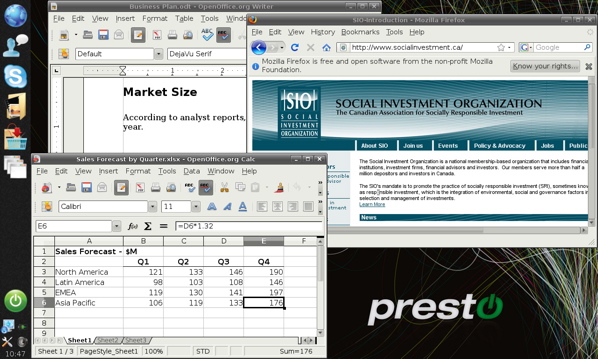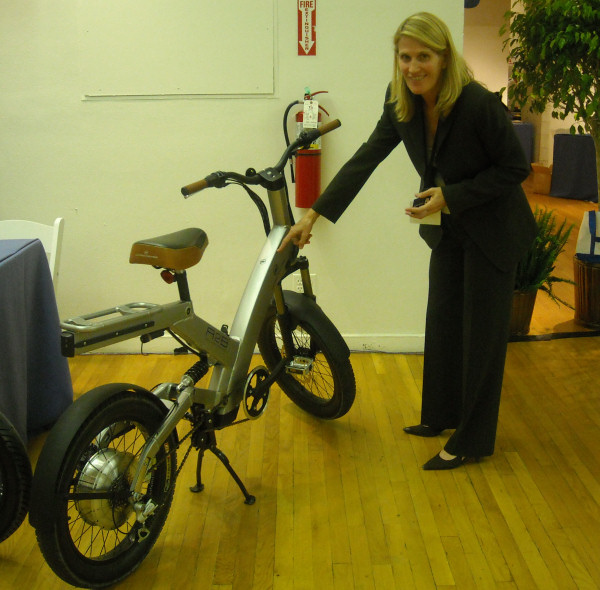By Angela Gunn, Betanews
Every three years, copyright activists see a glimmer of light in the dark tunnel of the Digital Millennium Copyright Act. That's when US Copyright Office throws open its exemption process, in the ongoing effort to make the 1990s-era rules fairer and better adapted to modern usage. Whether that's a successful effort or simply another leap in front of a train... well, what would a bunch of activists be if they didn't even try?
To that end, the Copyright Office heads to Stanford on Friday for public hearings on the formal comments received by that office, and will continue the Rule Making process -- the fourth since the DMCA was approved -- in Washington DC next week. The nineteen comments received have been grouped into eleven documents.
[Hearings times shown are PDT for May 1, EDT for later dates]
Document 1
Who: American Foundation for the Blind
Class(es) of work to be exempted: Literary works
The basics: This isn't the first time that advocates for the visually impaired have had to take their case through the Rule Making process, as the AFB's comment points out bitterly: "Six years after the 2002 Rule Making [that first granted exemptions to provide fairer access to the blind and visually impaired], copy protection continues to pose a significant barrier to digital content access." The trend, the brief notes, is actually to decrease accessibility, especially when particular titles are linked to particular vendors. (Kindle, anyone?) The organization, which is itself a copyright holder, asks the Copyright Office to extend and give teeth to the previously granted exemptions.
Hearing schedule: May 8, 10:00 am
Document 2
Who: Megan Carney
Class(es) of work to be exempted: Subscription-based streaming video
The basics: A three-part critique of platform requirements: They make older hardware obsolete, they're primarily used as a tool to block competitors, and there's no way around the restrictions they put on content.
Hearing schedule: May 8, 3:30 pm
Document 3
Who: Mark Rizik
Class(es) of work to be exempted: Motion pictures protected by anti-access measures
The basics: This one's for you, Linux crew. The petition notes that much anti-access tech requires that a royalty fee be paid, which is impossible on a freely distributed platform such as Linux.
Hearing schedule: Unknown.
Document 4a,b,c,d,e,f,g,h
Who: Cary Handman, Media Resources Center UC Berkeley (a); Kevin L. Smith, Duke University (b); Renee Hobbs (c and d), Peter DeCherney et al, University of Pennsylvania (e and f); Library Copyright Alliance and Music Library Association (g); Gail Fedak (h)
Class(es) of work to be exempted: Commercially produced multimedia used in classroom teaching and other educational uses
The basics: These petitions collectively make a case for protecting the fair-use rights of educators to excerpt works. The petitions differ on the exemptions previously granted in 2006; some recommend that they be expanded, while others merely ask that they continued beyond their 2009 expiration date. The apparent individual petitioners are, like the others on this list, information professionals at various American universities. Similar in certain ways to Document 11, but focused on educational use.
Hearing schedule: May 1, 9am (a); May 6, 1:00 pm (a,b,c,d,e,f,g,h)
Document 5a,b,c,d
Who: Fred von Lohmann, Jennifer S. Granick, Electronic Frontier Foundation (a); MetroPCS Communications, Inc. (b); Paul Posner, Youghiogheny D/B/A Pocket Communications (c); Jonathan Newman, Wireless Alliance et al (d)
Class(es) of work to be exempted: Mobile-phone software
The basics: Something old and something new in the category we will broadly call "unlocking." The EFF represents a trio of cell-phone recyclers and refurbishers in requesting an extension on a previous exemption allowing for unlocked handsets; they're also requesting a new exemption that would allow iPhone owners to run the apps they please (a.k.a., "jailbreaking").
Hearing schedule: May 1, 1:45 pm (b,c,d); May 1, 3:45 pm (a); May 8, 1:00 pm (a,b,c,d)
Document 6
Who: Joseph V. Montoro, Jr.
Class(es) of work to be exempted: Computer programs that need dongles to function
The basics: Remember dongles? If you're a sysadmin stuck with a program that still requires a dongle for authentication, you live in terror of the day the thing is lost or ceases to function. Mr. Montoro, who is president of Spectrum Software, recounts a number of horror stories in his petition.
Hearing schedule: May 8, 11:00 am
Document 7
Who: Glenn Pannenborg
Class(es) of work to be exempted: Computer software
The basics: Security folk, here's your category. Mr. Pannenberg, a CPA and auditor, is requesting an exemption for forensic analysis such as that regularly done by professional investigators. He cites two incidents from his own experience.
Hearing schedule: Unknown.
Document 8a,b
Who: J. Alex Halderman, University of Michigan
Class(es) of work to be exempted: DRM-bearing content that messes with one's computer (a); videogames with DRM that messes with one's computer (b)
The basics: The topic is technological protection measures (TPMs); you may know them better in the form of the notorious Sony rootkit or last year's Macrovision SafeDisc fiasco. Dr. Haldeman, who successfully co-petitioned for a related exemption in 2006, is an assistant professor of engineering at the University of Michigan. His research focuses on security and privacy issues introduced by access- and copy-control systems.
Hearing schedule: May 7, 2:30 pm (a,b)
Document 9a,b
Who: Matt Perkins
Class(es) of work to be exempted: DTV transmissions carrying a DVR-trammeling "broadcast flag" (a); audiovisual content on Blu-ray or another medium with an Image Constraint Token (b)
The basics: Broadcast flags aren't a pressing problem yet, but a problem with previous rulings concerning access controls introduced dangerous confusion to the applicable rules. This petition seeks in part to clear the air before those controls are widespread.
Hearing schedule: Unknown.
Document 10a,b
Who: Christopher Soghoian
Class(es) of work to be exempted: Digital downloads requiring ongoing authentication by a remote server.
The basics: If you've ever been a member of a streaming-music service that went boom and took your music access with it, this one's for you. The petition would require that consumers who have purchased works be assured of continued access. Mr. Sogohian is currently a student fellow at Harvard's Berkman Center for Internet and Society.
Hearing schedule: May 6, 10:00 am (a,b)
Document 11a,b
Who: Fred von Lohmann, Jennifer S. Granick, Electronic Frontier Foundation (a), Kartemquin Educational Films, Inc. and International Documentary Association (b)
Class(es) of work to be exempted: Multimedia on DVD
The basics: Viva mashups! This petition seeks to protect the rights of artists to excerpt fair-use clips of video from DVDs for noncommercial film use. The EFF is on the case, as are the documentarians filing the second set of comments. Similar in certain ways to Document 4, but focused on artistic use.
Hearing schedule: May 1, 11am (a); May 7, 10:00 am (a,b)
All times are local to the hearing (that is, PDT today, EDT for the rest).
The EFF's tangles with the DCMA weren't limited to exemption hearings this week. The organization is also taking on Apple, which it charges made inappropriate use of the DMCA to force the company running Bluwiki.com, an open-source project, to remove a discussion relating to reverse-engineering iTunes for iPod and iPhone owners. The EFF has done battle before of whether reverse engineering circumvents protections and violates the DMCA, but Apple's pressure on OdioWorks appears to be based strictly on the discussion of tactics rather than any actual attempt.
Copyright Betanews, Inc. 2009






 The prospects for applications were boundless, and Microsoft wanted to be seen as opening all the doors and not stepping through them first. The first question in journalists' minds was, would there be a counterpart to Hypercard? Without a Hypercard, Windows may as well be broken. Rest assured, we were told, a company called Asymmetrix would provide the toolkit that would revolutionize programming, with a bit of Microsoft's funding. The next generation metaphors for Windows were being created not by Microsoft but by Hewlett-Packard, for a product called NewWave -- again, Microsoft made certain journalists knew, with its help but not its supervision. And the world would know Windows was for real when it used an everyday spreadsheet with a name familiar to everyone: Lotus 1-2-3 G.
The prospects for applications were boundless, and Microsoft wanted to be seen as opening all the doors and not stepping through them first. The first question in journalists' minds was, would there be a counterpart to Hypercard? Without a Hypercard, Windows may as well be broken. Rest assured, we were told, a company called Asymmetrix would provide the toolkit that would revolutionize programming, with a bit of Microsoft's funding. The next generation metaphors for Windows were being created not by Microsoft but by Hewlett-Packard, for a product called NewWave -- again, Microsoft made certain journalists knew, with its help but not its supervision. And the world would know Windows was for real when it used an everyday spreadsheet with a name familiar to everyone: Lotus 1-2-3 G.







 Unlike HyperSpace, though, Presto is a Windows .exe software utility, meaning that it doesn't need specific chipsets or BIOS tweaks for quick boot-ups, according to Xandros' Smith. Consequently, Presto can be used on just about any PC hardware running Windows, even netbooks and old laptops, he contended. Windows Vista and XP are both supported.
Unlike HyperSpace, though, Presto is a Windows .exe software utility, meaning that it doesn't need specific chipsets or BIOS tweaks for quick boot-ups, according to Xandros' Smith. Consequently, Presto can be used on just about any PC hardware running Windows, even netbooks and old laptops, he contended. Windows Vista and XP are both supported.

 Beginning now, Betanews is going to get a lot more intimate with technology than you've seen us before, particularly with Microsoft Windows 7 now that it's becoming a reality. Next Tuesday, the first and probably only Release Candidate of the operating system will become available for free download.
Beginning now, Betanews is going to get a lot more intimate with technology than you've seen us before, particularly with Microsoft Windows 7 now that it's becoming a reality. Next Tuesday, the first and probably only Release Candidate of the operating system will become available for free download.